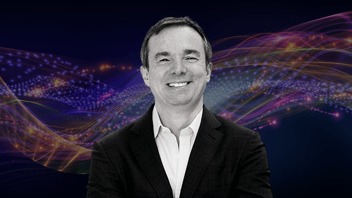Hugo Hamad: Decathlon at the Forefront of the AI Retail Revolution
.png)
Hugo Hamad, Director of Artificial Intelligence at sports retail giant Decathlon, believes the company is in a gold-medal position to capitalize on the recent advancements in AI. Ahead of his presentation at CDAO France next week, he explains why Decathlon stands to benefit from this technological wave
Decathlon is one of the world’s largest sports retailers. With more than 1700 stores and over 100,000 staff globally, it is renowned for innovation, manufacturing excellence, and its commitment to sustainable business practices.
Unlike other major sports retailers, Decathlon designs and manufactures its own brands for sale in its global network of stores. This puts them in a unique position with access to data produced at a mass scale from design, manufacturing, and retail.
Hugo Hamad, Director of Artificial Intelligence at Decathlon, believes this puts Decathlon in a unique position to take advantage of AI’s analytical power to streamline designs, make manufacturing more efficient and sustainable, and improve customer experiences.
Hugo will be speaking at CDAO France in Paris next week on making AI serve your business strategy, you can check out the full agenda and register for the event here.
What do you see as the biggest or most exciting AI developments or trends in the industry at the moment?
Hugo Hamad: There are a lot of trends, especially related to the technical aspects and frameworks that could move AI to the next level. But I think the real impact we've seen in the past two years is how ordinary people, not just technical experts, are starting to notice AI and its impact on their daily lives. This brings a significant change to our daily lives and businesses, allowing companies to unleash the power of AI and develop robust data strategies.
However, data and AI without digital transformation can be less impactful. Companies need to digitalize by integrating more platforms and digital tools into their processes, making them agile enough to incorporate AI effectively.
Why do you think this is such an important first step?
Hugo Hamad: Many companies still rely heavily on manual processes based on expertise alone. We need to collect and analyze data, both internally and externally, and use AI to assist in making better decisions. This involves putting advanced tools in the hands of experts, tracking every step and decision, and integrating more automation.
It's all about tracking all actions taken by experts and automating decisions that were previously made manually. But it's crucial to keep humans in the loop, maintaining a people-centered approach in design and decision-making.
Thinking about AI's impact on the retail industry, how do you see it shaping the future?
Hugo Hamad: We're already seeing AI's impact. For example, in forecasting, AI helps optimize supply chains, work with partners, and manage logistics. Data pipelines and AI models are integrated into business processes, updating decisions daily or weekly.
Another example is dynamic pricing, where we analyze market demand and competitors to suggest fair prices for our clients. AI also helps personalize communication with customers, understanding their behavior and needs. We continuously test and scale these AI-driven processes, which is fundamental to how we operate at Decathlon.
How mature do you think the retail industry is in terms of AI adoption?
Hugo Hamad: Many companies recognize the need to invest in data, AI, and digital transformation. The main challenge is disrupting legacy processes and convincing everyone, especially operational staff with decades of experience, to embrace these changes.
The democratization of AI, particularly generative AI, is helping to convince more people of its impact. We're seeing more business and expert teams coming to us, asking how to integrate AI. It's an interesting moment, but challenges remain. We must stay agile and continuously evolve our technology and processes to keep pace with the market.
There's often a hype cycle with new technologies. Do you think AI is just another hype, or is there something different about it?
Hugo Hamad: I don't think it's just hype. But it can be if companies don't evolve their practices. We've seen phases like big data where companies invested heavily but didn't fully leverage it.
Now, with generative AI, the challenge is addressing the entire chain from idea to production efficiently. Companies need the right people, platforms, and practices to innovate and iterate quickly. Those that do this can adapt better to new technologies and market changes, avoiding the trap of endless pilots without real production impact.
AI has its benefits but also limits and risks. What key challenges or risks do you see for retail businesses, and how can they be mitigated?
Hugo Hamad: One major risk is ensuring responsible AI adoption. Companies must implement guardrails to control AI models, maintain human oversight, and integrate security by design.
Issues of security, legality, ethics, and trust are paramount. Adoption and change management are significant challenges, but we have the technology and frameworks to develop solutions. We need to secure these solutions to protect companies, clients, and teammates.
Want to learn more?
Hugo Hamad is speaking at CDAO France on May 29th, 2024. Join him and many more world-class data and analytics leaders to learn about the trends driving value creation in data and analytics. Register to attend here.




